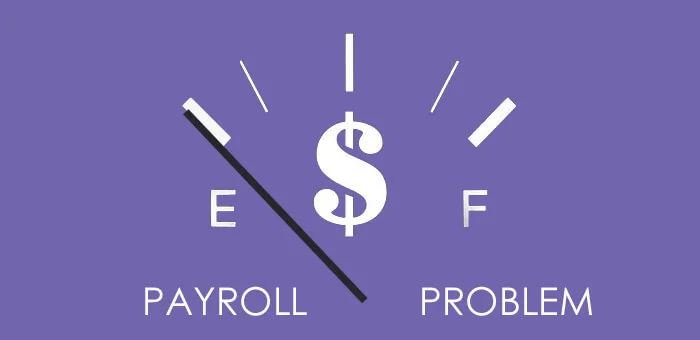The 7 best alternative financing options for your small business
As a small business owner, understanding your non-traditional loan options is critical.
Why?
Because small businesses have a harder time qualifying for bank business loans and lines of credit. And if you’re not aware of other options, you’ll end up wasting time and pulling hair trying to make a credit loan or traditional option work — while other, better alternatives are being left on the table.
One of the reasons small business owners don’t look into alternative financing is that so much information in this space is murky. The differences between options can be hard to grasp, and figuring out which option is the best for your business is tricky.
In this article, we’ll give you a comprehensive overview of the 7 best alternative financing options so you’ll know:
- How each option works
- What it takes to qualify
- Whether it’s ideal for your business or industry
Which alternative loan can your business qualify for? A complete look at each unconventional financing option:
Alternative small business financing option #1
Accounts Receivable (AR) Financing
How it works: AR financing — also known as invoice financing — lets your business borrow against the value of your accounts receivable, i.e. your unpaid invoices. The alternative lender advances 85%-90% of your accounts receivable to you, while the invoices serve as collateral. In other words, you’re getting your AR financed (hence the name).
How to qualify: By working with credit-worthy customers. Your lender wants to minimize risk. So if you sell to, say, Costco, your invoices have high credit, and you’ll be easily approved with good terms — since the risk for your lender is minimal.
Who it’s ideal for: Small businesses that experience long payment cycles — for example, financing for healthcare brands.
They’re also good for businesses with seasonal fluctuations.
Keep in mind:
AR financing companies don’t charge traditional interest! Calculating your fees is a must if you want to understand the true cost of borrowing.
Alternative small business financing option #2
Invoice Factoring
How it works: Invoice factoring is a cash advance on your unpaid invoices. You provide your invoices to a factoring company in exchange for cash upfront, and the factoring company takes the responsibility of collecting the invoices for you. Unlike AR financing, the lender isn’t giving you a loan; they’re buying your invoices outright.
How to qualify: By having unpaid invoices with clients that have good creditworthiness (e.g. Amazon, Walmart, etc.). Your own credit worthiness is irrelevant, since the factoring company will be collecting the invoices from your customers, not you. Some lenders may require a minimum monthly sales requirement.
Who it’s ideal for: Small businesses that work with other businesses and are waiting on invoices.
To keep in mind:
- Factoring can be very expensive! Only utilize those opportunities that will put you in a better position than you were before, and price products/services with factoring costs in mind.
- Collections might not be done the way you do it – and could impact your reputation. Find out how the factoring company does their collections before you go ahead with them.
Alternative small business financing option #3
Payroll Financing
How it works: Payroll financing gives you a short-term loan to fund your payroll that same day — while waiting for outstanding invoices from clients.
How to qualify: At Payro, you just need to be in business for at least 2 years with a minimum of 5 employees paid through a payroll company or accounting software.
Who it’s ideal for: Any business that needs swift funding as an urgent, stop-gap payroll method and wants a fair, reasonable rate (most short-term loans have very high interest rates). For example, if you’re waiting on a check to clear, or there’s a payment due in the next 30 days.
Also ideal for: Applying is worthwhile as a backup emergency fund for any business with an employee headcount of 5+. Payroll loans are free to enroll — there’s no cost until funds are withdrawn, and they serve as great payroll “insurance.”
To keep in mind:
- Although this is much easier and quicker to qualify for than other loans, you may not be able to get the full amount you need to cover payroll.
- Once you’re approved, it works like an emergency fund with a credit limit that doesn’t expire. As soon as you’ve repaid your loan, you can borrow again for as long as you qualify.
- Rates are 1.5% interest per week with a 4-week maximum repayment period — so it’s most worthwhile if you’re borrowing for a short period.
Alternative small business financing option #4
Supply Chain Financing
How it works: with supply chain financing, a lender pays your supplier or goods, up front, essentially giving you an advance of up to 100% of your accounts payable. Often it might be 90%, and when you’ve completed your payment to the lender, the rest of the 10% gets released into your account.
How to qualify: You’ll need to have a constant “roll-over” where you have a client who’s buying the finished goods. The buyers need to have a good credit rating, and you need to have a history of positive annual sales.
Who it’s ideal for: Suppliers – companies going through cycles with manufacturing and selling finished goods. Both domestic and international finished goods.
Also good for: Buyers – you can extend payment terms or improve working capital by optimizing terms and reducing costs.
Keep in mind:
- You’ll likely need to be in business for at least 2 years to qualify for supply chain financing.
- Most third-party lenders will require a minimum sum of annual sales — as much as $10 million.
Alternative small business financing option #5
Mobilization
How it works: Mobilization financing gives you funds for unfinished goods to buy material or hire more workforce before work or a project begins.
How to qualify: Criteria for eligibility can vary widely, but most lenders will require a signed public contract.
Who it’s ideal for: Construction companies where contractors need to mobilize resources and hire workers to fulfill a contract, but don’t yet have enough of an advance to pay for the people and materials they’ll need. This lets you move forward on the project even without those funds.
Also good for: businesses involving manufacturing and fabrication.
Keep in mind:
- In addition to traditional interest, mobilization financing has closing costs — so find out what they are before you sign.
- Approval is usually up to 20% of the contract’s value.
Alternative small business financing option #6
Bridge Loans
How it works: Bridge loans are immediate short-term financing that bridge you between loans. Bridge loans are here to fill the gap between your current financial situation and a future funding source.
How you’ll qualify: Bridge loans are secured loans, so lenders will often require collateral. They may also need good credit scores, as well as strong annual revenue requirements.
Who it’s ideal for: Commercial real estate with new projects; most traditional loans won’t lend to non-income producing buildings.
Keep in mind:
- Bridge loans have higher interest rates and higher monthly payments than standard loans.
- You need to make sure you have enough cash flow to cover the payments.
Is this the end? Not at all.
Alternative lenders offer an incredibly wide range of financing options beyond traditional lines of credit.
This is only a brief intro showing you the broad categories of nontraditional loans & financing available for small businesses.
Within each alternative financing type we listed, there are endless options for specific industries — from healthcare to construction to manufacturing to retail.
Don’t let limited access to a business line of credit hold back your business. Do the digging and connect with a quasi underwriter to embrace the world of alternative lending and discover a wealth of opportunities waiting to be unlocked.
But don’t get burned — here’s how to know if your loan provider is actually a loan shark.
Morris Reichman
hello@payrofinance.comMorris Reichman is the founder and CEO of Payro Finance. Former Vice President at Infinity Capital Funding an alternative finance company, Morris possesses a versatile background in the finance industry. Having spent 7+ years working across global macro operations and start up corporate finance Morris's expertise is in business accounting, risk management and investment analysis. Morris founded Payro Finance to support business owners and ensure their business continuity.
Need a short-term loan to cover payroll?
Apply in under two minutes, and get approved within 2 days. Once approved, funds are in your account the same day.
- Always 1.5% weekly
- Up to $500,000
- Same-day funding


